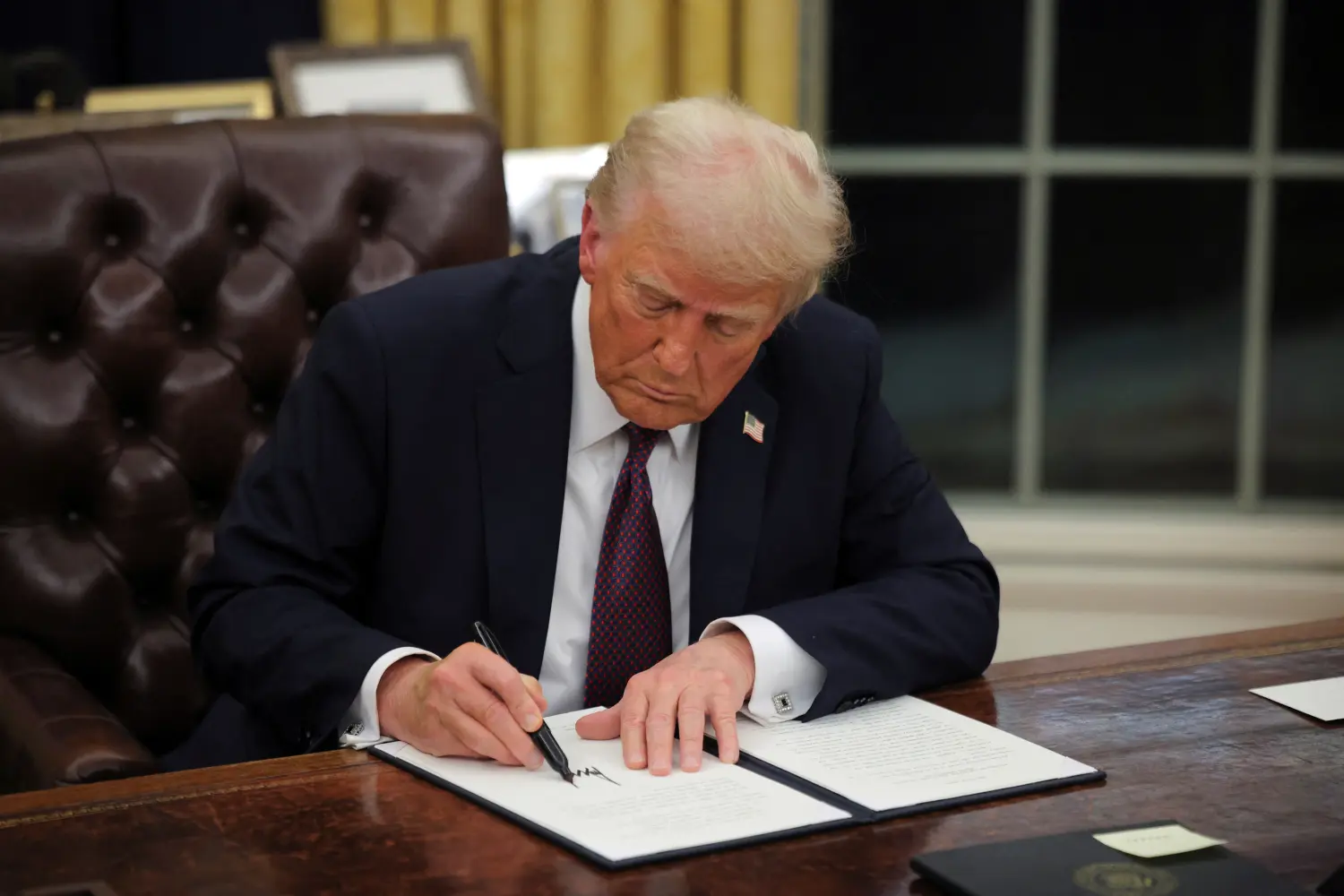Wall Street Joins Trump in Saudi Arabia to Court Gulf Billions
07.05.2025 18:00 2 min. read Alexander Stefanov
President Donald Trump is set to make his first overseas trip since returning to office, leading a high-powered U.S. delegation to Saudi Arabia, Qatar, and the UAE next week.
The mission: secure sweeping investment deals in energy, tech, and infrastructure, and convince Gulf nations to pour more capital into the U.S. economy.
The centerpiece of the visit will be the Saudi-U.S. Investment Forum in Riyadh on May 13, where Trump is expected to meet Crown Prince Mohammed bin Salman. Traveling with him are leaders from the upper echelons of finance and tech, including BlackRock’s Larry Fink, Citigroup’s Jane Fraser, Blackstone’s Steve Schwarzman, and Alphabet CFO Ruth Porat. IBM’s Arvind Krishna and Qualcomm’s Cristiano Amon will also be present, with crypto and AI advisor David Sacks representing the White House.
The forum’s agenda spans four focus areas: energy, artificial intelligence, advanced manufacturing, and finance. Trump is reportedly aiming to secure at least $1 trillion in commitments from Saudi Arabia and the UAE to bolster U.S. projects and businesses.
But Trump’s timing could prove challenging. Saudi Arabia is grappling with a widening budget deficit as oil prices plunge. Brent crude has dropped nearly 20% this year, pushing the kingdom into a $15.7 billion shortfall in Q1 2025—its largest in over three years. Goldman Sachs now estimates the annual gap could hit $67 billion, forcing the government to rely more heavily on borrowing.
Despite fiscal strain, Saudi Arabia continues to spend aggressively on its Vision 2030 transformation strategy, with major infrastructure projects and sovereign fund outlays pushing its oil breakeven point beyond $100 a barrel.
Trump’s visit comes as Riyadh intensifies efforts to become the region’s top investment hub, aiming to attract $100 billion in annual foreign direct investment by the end of the decade. Securing closer ties with the U.S.—especially on defense and technology—is a key component of that vision.
The trip is expected to accelerate talks around long-term U.S.-Gulf economic cooperation and deepen ties between Saudi Arabia’s ambitious future plans and America’s financial powerhouses.
-
1
Dollar Faces Deep Decline as Fed Cuts Pressure Currency, Warns Morgan Stanley
06.06.2025 18:00 2 min. read -
2
Economist Who Called 1987 Crash Warns Markets Face Growing Risk
09.06.2025 17:00 2 min. read -
3
Will Japan’s Central Bank Spark a Crypto Rally?
11.06.2025 12:00 1 min. read -
4
Tariffs Threaten to Stall U.S. Growth in 2025, Recovery Not Expected Until 2026
07.06.2025 13:00 1 min. read -
5
Push for Rate Cuts Fuels Speculation Over Powell’s Successor
08.06.2025 8:00 1 min. read
Recession Fears Linger as Economic Signal Flashes Long-Term Warning
Despite a recent shift in sentiment suggesting the U.S. economy might dodge a recession, key forecasting tools are telling a different story.
Russia’s Oil Revenues Strained as Exports Decline Again
Russia’s oil exports took another hit last week, undermining gains from rising global prices as shipment volumes slipped for the second week in a row.
Putin Cornered as Iran Calls for Help After U.S. Strikes
As tensions erupt in the Middle East following U.S. strikes on Iranian nuclear facilities, Tehran has turned to Moscow for support.
Robert Kiyosaki Predicts 2025 “Super-Crash,” Urges Hoarding Gold, Silver, and Bitcoin
Personal-finance author Robert Kiyosaki is sounding the alarm that next year could bring an economic breakdown unlike anything modern markets have seen.
-
1
Dollar Faces Deep Decline as Fed Cuts Pressure Currency, Warns Morgan Stanley
06.06.2025 18:00 2 min. read -
2
Economist Who Called 1987 Crash Warns Markets Face Growing Risk
09.06.2025 17:00 2 min. read -
3
Will Japan’s Central Bank Spark a Crypto Rally?
11.06.2025 12:00 1 min. read -
4
Tariffs Threaten to Stall U.S. Growth in 2025, Recovery Not Expected Until 2026
07.06.2025 13:00 1 min. read -
5
Push for Rate Cuts Fuels Speculation Over Powell’s Successor
08.06.2025 8:00 1 min. read


